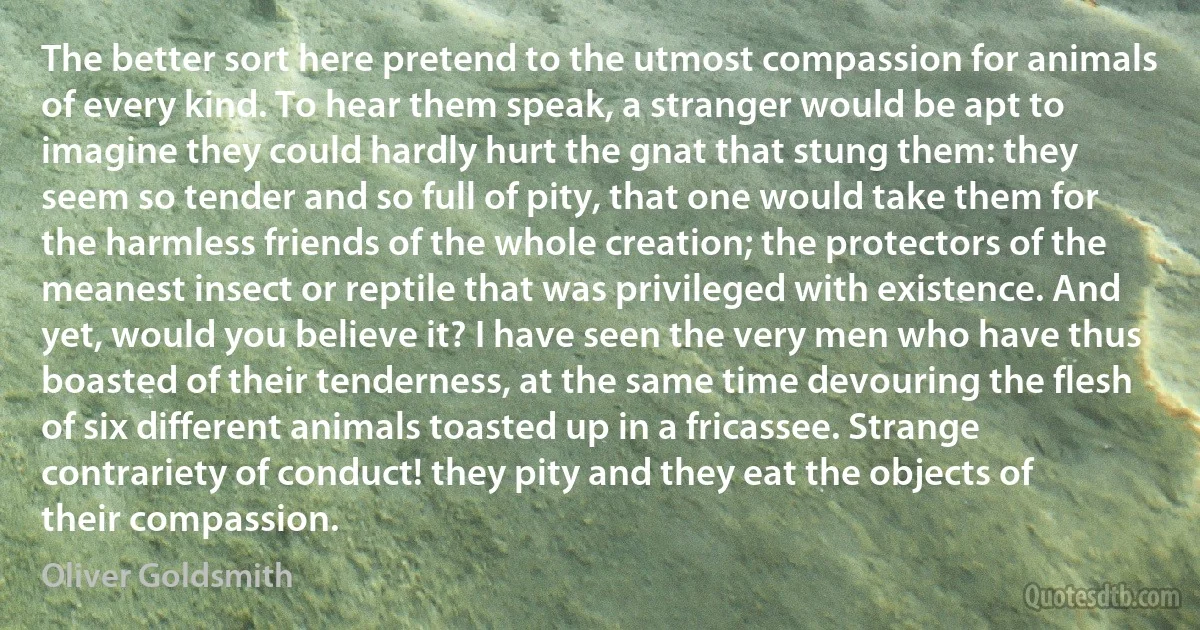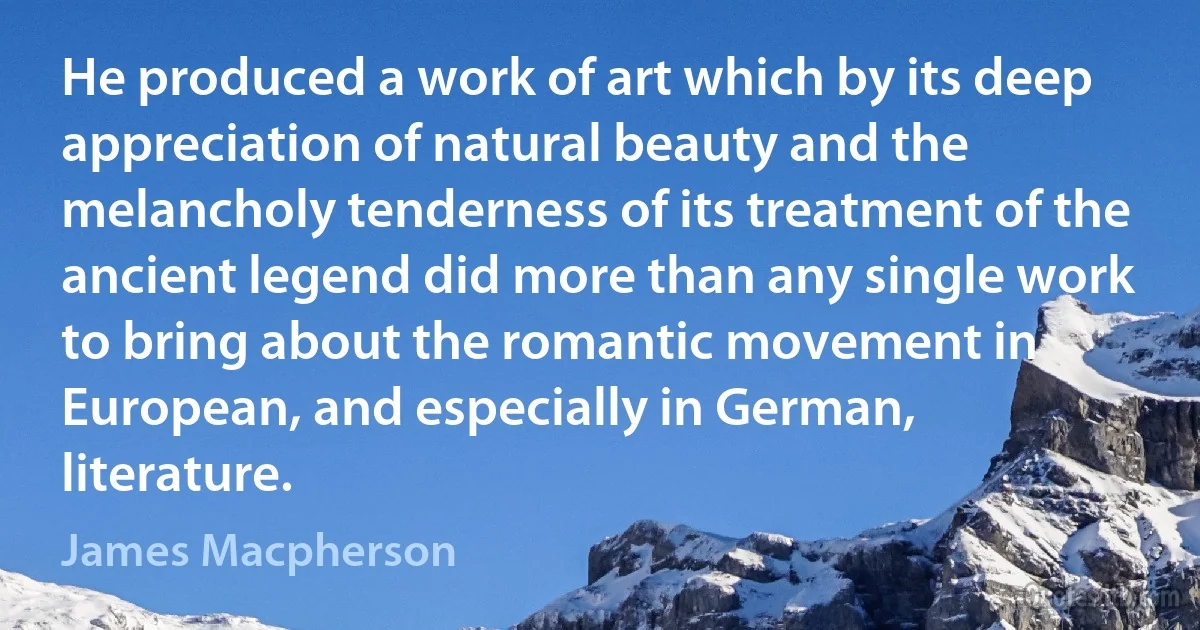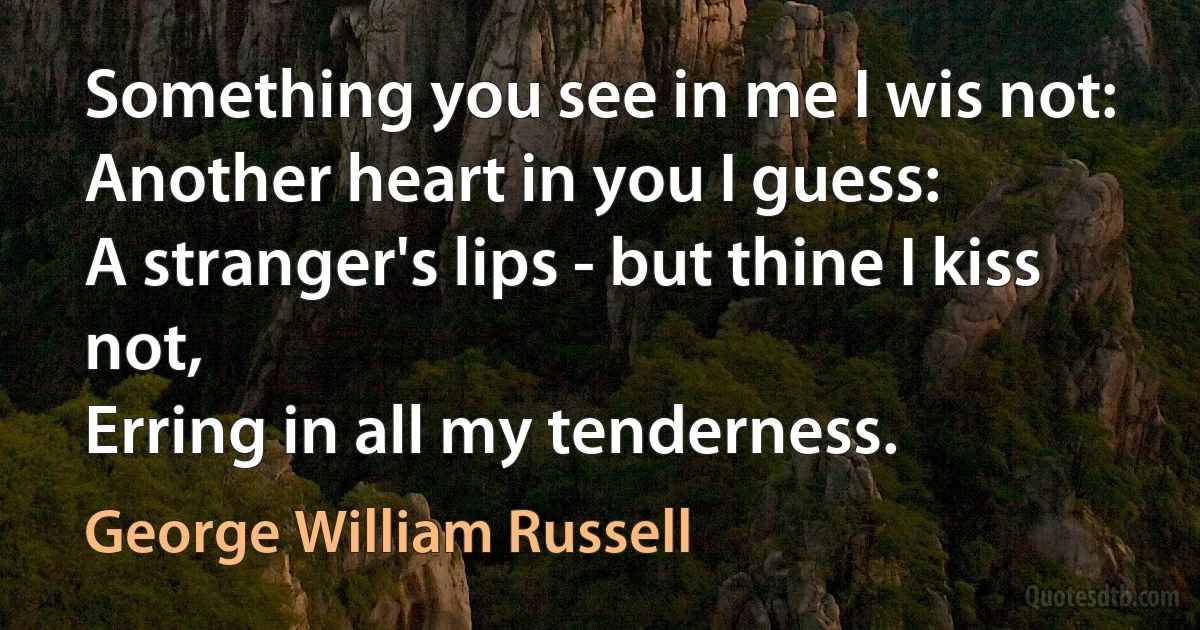Tenderness Quotes - page 4
In our spiritual forthbringing He useth more tenderness of keeping, without any likeness: by as much as our soul is of more price in His sight. He kindleth our understanding, He directeth our ways, He easeth our conscience, He comforteth our soul, He lighteneth our heart, and giveth us, in part, knowing and believing in His blissful Godhead, with gracious mind in His sweet Manhood and His blessed Passion, with reverent marvelling in His high, overpassing Goodness; and maketh us to love all that He loveth, for His love, and to be well-pleased with Him and all His works. And when we fall, hastily He raiseth us by His lovely calling and gracious touching. And when we be thus strengthened by His sweet working, then we with all our will choose Him, by His sweet grace, to be His servants and His lovers lastingly without end.

Julian of Norwich
In general, it is possible to say that in artists as deliberate, as careful as [Durer and Holbein], drawing is particularly tight and the color is as cold as the verity of mathematics. In other artists, on the contrary, in those who are the poets of the heart, like Raphael, Correggio, Andrea del Sarto, line has more suppleness and color, more winning tenderness. In others whom we call realists that is to say, whose sensibility is more exterior, in Rubens, Velasquez, Rembrandt, for example, line has a living charm with its force and its repose, and the color sometimes bursts into a fanfare of sunlight, sometimes fades into mist.
So, the modes of expression of men of genius differ as much as their souls, and it is impossible to say that in some among them drawing and color are better or worse than in others.

Auguste Rodin
It is in the nature of a teenager to want to destroy. The destructive impulse is universal among children of all ages, rises to a peak of vividness, ingenuity and fascination in adolescence, and thereafter never entirely goes away. Violence and hatred, and the fear of our own inability to control them in ourselves, are a fundamental part of our birthright, along with altruism, creativity, tenderness, pity and love. It therefore requires an immense act of hypocrisy to stigmatize our young adults and teenagers as agents of deviance and disorder. It requires a policy of dishonesty about and blindness to our own histories, as a species, as a nation, and as individuals who were troubled as teenagers, and who will always be troubled, by the same dark impulses. It also requires that favorite tool of the hypocritical, dishonest and fearful: the suppression of constitutional rights.

Michael Chabon
(After I had outlived the shocks of childhood, after the habit of reflection had been born in me, I used to mull over the strange absence of real kindness in Negroes, how unstable was our tenderness, how lacking in genuine passion we were, how void of great hope, how timid our joy, how bare our traditions, how hollow our memories, how lacking we were in those intangible sentiments that bind man to man, and how shallow was even our despair. After I had learned other ways of life I used to brood upon the unconscious irony of those who felt that Negroes led so passional an existence! I saw that what had been taken for our emotional strength was our negative confusions, our flights, our fears, our frenzy under pressure.

Richard Wright
I thank warmly the friends who remained loyal to me through the most difficult hours of my life. I do not name anyone in particular because I cannot name them all.
However, I consider myself justified in making an exception in the case of my companion, Natalia Ivanovna Sedova. In addition to the happiness of being a fighter for the cause of socialism, fate gave me the happiness of being her husband. During the almost forty years of our life together she remained an inexhaustible source of love, magnanimity, and tenderness. She underwent great sufferings, especially in the last period of our lives. But I find some comfort in the fact that she also knew days of happiness.

Leon Trotsky
When some people urged that it is impossible for man to live like the animals owing to the tenderness of his flesh and because he is naked and unprotected, [ Diogenes] would say in reply that men are so very tender because of their mode of life. ... Man's ingenuity and his discovering and contriving so many helps to life had not been altogether advantageous to later generations, since men do not employ their cleverness to promote courage or justice, but to procure pleasure.

Dio Chrysostom
The fictitious deities of all races in all worlds once more crowded themselves upon me, symbols of majesty and tenderness, of ruthless power, of blind creativity, and of all-seeing wisdom. And though these images were but the fantasies of created minds, it seemed to me that one and all did indeed embody some true feature of the Star Maker's impact upon the creatures.

Olaf Stapledon
With soul of flame and temper of steel we must act as our coolest judgment bids us. We must exercise the largest charity towards the wrong-doer that is compatible with relentless war against the wrong-doing. We must be just to others, generous to others, and yet we must realize that it is a shameful and a wicked thing not to withstand oppression with high heart and ready hand. With gentleness and tenderness there must go dauntless bravery and grim acceptance of labor and hardship and peril.

Theodore Roosevelt
When an Indian Child has been brought up among us, taught our language and habituated to our Customs, yet if he goes to see his relations and makes one Indian Ramble with them, there is no perswading him ever to return, and that this is not natural to them merely as Indians, but as men, is plain from this, that when white persons of either sex have been taken prisoners young by the Indians, and lived a while among them, tho' ransomed by their Friends, and treated with all imaginable tenderness to prevail with them to stay among the English, yet in a Short time they become disgusted with our manner of life, and the care and pains that are necessary to support it, and take the first good Opportunity of escaping again into the Woods, from whence there is no reclaiming them.

Benjamin Franklin
There certainly is self division. The man who watches a woman undressing has the red eyes of an ape; yet the man who sees two young lovers, really alone for the first time, who brings out all the pathos, the tenderness and uncertainty when he tells about it, is no brute; he is very much human. And the ape and the man exist in one body; and when the ape's desires are about to be fulfilled, he disappears and is succeeded by the man, who is disgusted with the ape's appetite.

Colin Wilson
I went to see this picture [Raphael's painting 'Madonna della Sedia' which Renoir saw in Florence in 1882] just to have a good laugh – and I found myself in front of the most wonderfully free, solid, simple, alive painting it is possible to imagine – arms and legs of real flesh, and what a touching expression of maternal tenderness.

Pierre-Auguste Renoir



